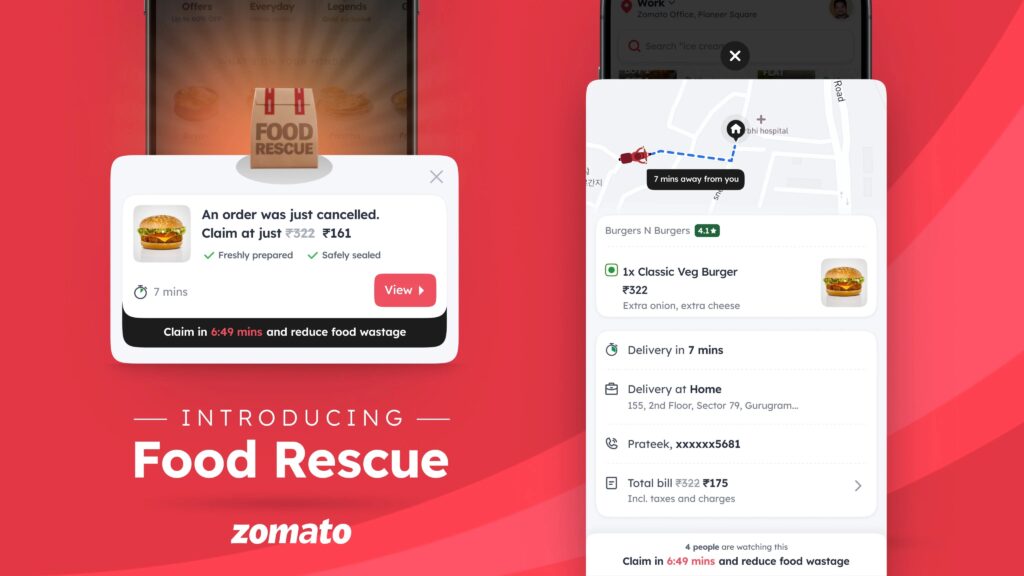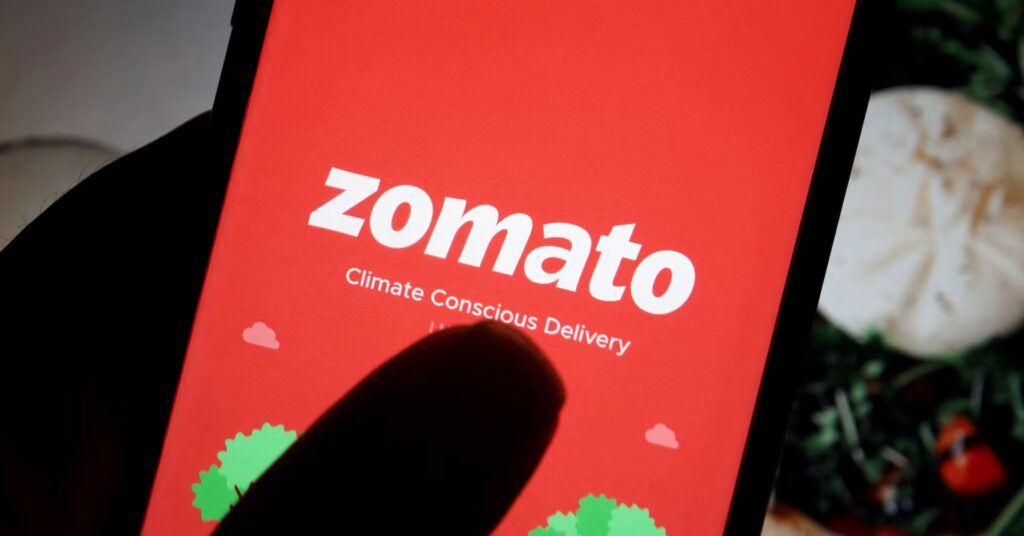India’s Largest Food Delivery App Tackles Waste with New Rescue Feature – But Some Restaurants Aren’t Biting
4 Mins Read
Zomato has introduced a Food Rescue feature to allow customers to buy cancelled orders at a discounted rate, but restaurants remain divided over the move.
India isn’t just home to the world’s largest population, it’s also responsible for 7.4% of all food wasted globally, behind only China.
According to the UN’s Food Waste Index Report 2024, the country wasted 780 million tonnes of food in 2022, accounting for 22% of all food produced there. If this amount was rescued, it could feed 377 million people (over a quarter of its population) – for context, 16% of India’s population was undernourished in 2022.
While a majority of these figures come at the household level, businesses also play an essential role in cutting food waste. Spurred by the issue, food delivery platform Zomato this month kickstarted a new feature to tackle a major problem for the industry: cancellations.
Every month, over 400,000 “perfectly good orders” get cancelled on its app, in spite of stringent safeguards like a no-refund policy. This, of course, leads to a “tremendous amount of food wastage, according to Zomato CEO Deepinder Goyal.
The company’s solution is Food Rescue, a feature that sees cancelled orders pop up for nearby users, who can “grab them at an unbeatable price, in their original untampered packaging, and receive them in just minutes”, Goyal explained in a post on X.
How the Food Rescue scheme works

With the initiative in place, when a customer cancels an order, it appears on the home page of other Zomato users within a 3km radius of the delivery partner who is carrying the order.
There are several safeguards to ensure freshness and food quality. For example, the option to grab the cancelled orders is only available for a few minutes, and perishable items sensitive to distances or temperatures, like ice creams, shakes or smoothies, won’t be eligible for the Food Rescue feature.
The original customer and those in their vicinity won’t receive the option to claim the cancelled order, and Zomato will not keep any proceeds (bar government taxes). Instead, the amount paid by the new customer will be shared with the original user and the restaurant. Delivery drivers will also be compensated for the entire trip.
“The top concern for us, the restaurant industry, and even the customers who cancel these orders, is to somehow save the food from going to waste,” Goyal said.
Several X users pointed out potential loopholes in the policy, such as limiting cancellations to two a month, not making the scheme applicable for orders where customers are paying with cash, and only initiating the option or orders on the way to prevent restaurants from serving lower-quality food if an order is cancelled.
Responding to these comments, Goyal clarified that all these measures are already set up. Still, many users remain sceptical about the efficacy of the policy in the Indian market, to which he responded: “Let’s see how it goes. Hard to predict human behaviour. We are taking our best shot at reducing wastage with this one.”
Restaurants divided over Zomato’s food waste efforts

The food waste initiative was first rolled out as a mandatory policy in September, but was rolled back after meeting resistance from several restaurants. It was reintroduced this month as a voluntary scheme, scrapping the “relisting enablement fee” it charged eateries for cancelled orders in the initial version of the Food Rescue policy.
Restaurants will receive compensation for the original order, alongside a part of the fee paid by the new customer. And so, while these businesses can opt out of the scheme, Zomato claims that 99.9% of its restaurant partners want to be part of the food waste reduction effort.
But some food businesses remain unconvinced, raising concerns about the potential damage to brand image and loyalty, claiming there’s no assurance that food quality will be maintained (although Zomato doesn’t let the new customers rate the restaurants).
“We believe the earlier policy of cancelled food being returned to the restaurant was better, as the current model carries higher risks than rewards, potentially harming a restaurant’s reputation,” one restaurant partner told NDTV Profit. “For instance, a customer might end up ordering something they didn’t intend to, simply because it was discounted.”
The publication reported that it spoke to 10 restauranteurs, the consensus being that the food delivery platform – no stranger to controversy – needed to build confidence among its partners. Some, meanwhile, viewed the initiative as a greenwashing practice.
It’s not the first time that accusation has been levelled at Zomato, which has touted a “climate-conscious delivery” system that involves carbon offsetting, “plastic-neutral” deliveries (which involve recycling more than 100% of the plastic used in its orders), and a goal to move to a fully electric delivery fleet by 2030.
That said, an effort to reduce food waste by a company that holds 58% of India’s food delivery market isn’t to be scoffed at. And several restaurant owners have recognised this. Ritika Sharma, co-owner and director of Litchi Bistro in New Delhi, praised the sustainability objectives of the move and suggested it could enhance businesses’ public standing by showing their alignment with corporate social responsibility.
“It would have a lasting impact on communities and the environment if implemented with transparency and clear streamlined operations,” she told the Financial Express.



